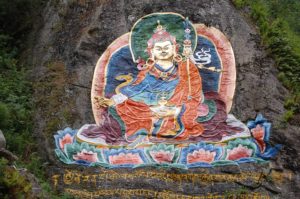Having developed somewhat of an interest in Buddhism, for my own personal reasons I will keep the reasons for my interest private. What I have found is that this is one of the most peaceful of all religions. Definitely it has a much more peaceful history than Christianity. Now I tend to be tolerant. And I would never presume to be so good as to know, with any amount of certainty, the heart and mind of God about His creation. Whether the path any of us take will lead us to hell or bring us back as a slug for our wrongdoings will remain to be seen. I certainly will not speculate.
Christ vs. Buddha
But there is one concern I do have about this topic, “Christ vs. Buddha” that directly relates to my own personal way of living.
 From what I know about Buddhist history and its practices, the focus is primarily internal. There is some concern with treating others fairly and living a moral life, but unlike Christianity, there is no real mantra to go out and “save” the world. History tells of the great Buddha being born into unmatched wealth, leaving the comfort of the kingdom in which he was an heir and coming full force into shocking contact with suffering, old age, sickness and death of which he had never seen and had never even imagined. He made a strong decision to find a way out of the suffering of old age, sickness, and death. On this quest, he is said to have sat for many years, often in an almost comatose state, in the presence of monks seeking an end to this suffering of mankind. His answer was “Enlightenment.” The practice of the Buddha is to teach others how to obtain enlightenment and thereby end their own suffering. He left in his wake an example of almost complete self-discovery and solitude as the path to enlightenment and eventually Nirvana.
From what I know about Buddhist history and its practices, the focus is primarily internal. There is some concern with treating others fairly and living a moral life, but unlike Christianity, there is no real mantra to go out and “save” the world. History tells of the great Buddha being born into unmatched wealth, leaving the comfort of the kingdom in which he was an heir and coming full force into shocking contact with suffering, old age, sickness and death of which he had never seen and had never even imagined. He made a strong decision to find a way out of the suffering of old age, sickness, and death. On this quest, he is said to have sat for many years, often in an almost comatose state, in the presence of monks seeking an end to this suffering of mankind. His answer was “Enlightenment.” The practice of the Buddha is to teach others how to obtain enlightenment and thereby end their own suffering. He left in his wake an example of almost complete self-discovery and solitude as the path to enlightenment and eventually Nirvana.
Christ is known to have been born into complete poverty and is not known forever living in any other state.
His call is told as being completely divine rather than by choice and yet He walked the earth in a similar quest as the Buddha. His teachings focused on living a moral and upright life. He chose a much different path than the Buddha, however. He spent many days in the presence of saint and sinner alike (more with the sinner if the Bible is to be believed). Prayer and solitude were encouraged but not much until very close to His death. And in His wake, He left a trail of good works, acts of kindness and service to mankind. Although His teachings are countless, His primary focus was on the way of living. His answer to the end of suffering is by becoming a “Servant of all.” His primary mode of living was external, reaching out to the sick, suffering and dying, and creating change by His life, actions, and teachings.
 Now I will not contend that one teaching has a greater impact than the other. I concede that both have great followers and peaceful teachings. What I will contend is that for some, living life with an internal, individual focus will not be enough. It does not always reach the inmate human need for service; it brings out the unity necessary for mankind. Of course, the Buddha did not mean to make a selfish creation of mankind by his discovery well earned and worthy. But I have found than many on the search for Enlightenment have too great a focus on the self. Those of us who prefer to see mankind as a unit, in a complete state of kinship and in dire need for action will not find much solace in such beliefs. Seeking individual freedoms from suffering is necessary, but also is living a life of service. One should always, regardless of their beliefs see a need to take action in his home, community, nation, and world. Based on the current teachings of Buddha, Nirvana can not likely be obtained in one life. Only a Buddha can do such things; not even a Christ is at his level.
Now I will not contend that one teaching has a greater impact than the other. I concede that both have great followers and peaceful teachings. What I will contend is that for some, living life with an internal, individual focus will not be enough. It does not always reach the inmate human need for service; it brings out the unity necessary for mankind. Of course, the Buddha did not mean to make a selfish creation of mankind by his discovery well earned and worthy. But I have found than many on the search for Enlightenment have too great a focus on the self. Those of us who prefer to see mankind as a unit, in a complete state of kinship and in dire need for action will not find much solace in such beliefs. Seeking individual freedoms from suffering is necessary, but also is living a life of service. One should always, regardless of their beliefs see a need to take action in his home, community, nation, and world. Based on the current teachings of Buddha, Nirvana can not likely be obtained in one life. Only a Buddha can do such things; not even a Christ is at his level.
While living a life not likely to reach the level of Buddha, why not take The Christ’s suggestion and follow his path of service to mankind and make a difference in more lives than one’s own?





